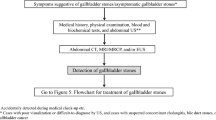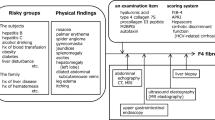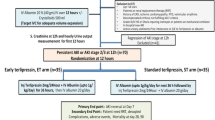Abstract
Background
Response to ursodeoxycholic acid (UDCA) in primary biliary cholangitis (PBC) has been traditionally assessed 1 to 2 years after treatment initiation. With the development of new drugs, some patients may benefit from an earlier introduction of second-line therapies.
Aims
This study aims to identify whether well-validated response criteria could correctly identify individuals likely to benefit from add-on second-line therapy at 6 months.
Methods
Analysis of a multicenter retrospective cohort which included only patients with clear-cut PBC.
Results
206 patients with PBC (96.6% women; mean age 54 ± 12 years) were included. Kappa concordance was substantial for Toronto (0.67), Rotterdam (0.65), Paris 1 (0.63) and 2 (0.63) criteria at 6 and 12 months, whereas Barcelona (0.47) and POISE trial (0.59) criteria exhibited moderate agreement. Non-response rates to UDCA was not statistically different when assessed either at 6 or 12 months using Toronto, Rotterdam or Paris 2 criteria. Those differences were even smaller or absent in those subjects with advanced PBC. Mean baseline alkaline phosphatase was 2.73 ± 1.95 times the upper limit of normal (× ULN) among responders versus 5.05 ± 3.08 × ULN in non-responders (p < 0.001).
Conclusions
After 6 months of treatment with UDCA, the absence of response by different criteria could properly identify patients who could benefit from early addition of second-line therapies, especially in patients with advanced disease or high baseline liver enzymes levels.



Similar content being viewed by others
Data availability
Data is available upon request to corresponding author.
Abbreviations
- UDCA:
-
Ursodeoxycholic acid
- PBC:
-
Primary biliary cholangitis
- ULN:
-
Upper limit of normal
- BCSG:
-
Brazilian Cholestasis Study Group
- AMA:
-
Anti-mitochondrial antibodies
- ALP:
-
Alkaline phosphatase
- ALT:
-
Alanine aminotransferase
- AST:
-
Aspartate aminotransferase
- GGT:
-
Gamma-glutamyl transferase
- IQR:
-
Interquartile range
- ANA:
-
Antinuclear antibodies
- SD:
-
Standard deviation
References
Corpechot C, Carrat F, Bonnand AM et al. The effect of ursodeoxycholic acid therapy on liver fibrosis progression in primary biliary cirrhosis. Hepatology. 2000;32:1196–1199.
Corpechot C, Abenavoli L, Rabahi N et al. Biochemical response to ursodeoxycholic acid and long-term prognosis in primary biliary cirrhosis. Hepatology. 2008;48:871–877.
Harms MH, van Buuren HR, Corpechot C et al. Ursodeoxycholic acid therapy and liver transplant-free survival in patients with primary biliary cholangitis. J Hepatol. 2019;71:357–365.
Lammers WJ, van Buuren HR, Hirschfield GM et al. Levels of alkaline phosphatase and bilirubin are surrogate end points of outcomes of patients with primary biliary cirrhosis: an international follow-up study. Gastroenterology. 2014;147:1338-1349.e5.
Itakura J, Izumi N, Nishimura Y et al. Prospective randomized crossover trial of combination therapy with bezafibrate and UDCA for primary biliary cirrhosis. Hepatol Res. 2004;29:216–222.
Lens S, Leoz M, Nazal L et al. Bezafibrate normalizes alkaline phosphatase in primary biliary cirrhosis patients with incomplete response to ursodeoxycholic acid. Liver Int. 2014;34:197–203.
Corpechot C, Chazouillères O, Rousseau A et al. A placebo-controlled trial of bezafibrate in primary biliary cholangitis. N Engl J Med. 2018;378:2171–2181.
Nevens F, Andreone P, Mazzella G et al. A placebo-controlled trial of obeticholic acid in primary biliary cholangitis. N Engl J Med. 2016;375:631–643.
Trauner M, Nevens F, Shiffman ML et al. Long-term efficacy and safety of obeticholic acid for patients with primary biliary cholangitis: 3-year results of an international open-label extension study. Lancet Gastroenterol Hepatol. 2019;4:445–453.
Tanaka A, Hirohara J, Nakano T et al. Association of bezafibrate with transplant-free survival in patients with primary biliary cholangitis. J Hepatol. 2021;75:565–571.
Lindor KD, Bowlus CL, Boyer J et al. Primary biliary cholangitis: 2018 Practice guidance from the American Association for the Study of Liver Diseases. Hepatology. 2019;69:394–419.
Ludwig J, Dickson ER, McDonald GSA. Staging of chronic nonsuppurative destructive cholangitis (syndrome of primary biliary cirrhosis). Virchows Arch A Pathol Anat Histol. 1978;379:103–112.
Parés A, Caballería L, Rodés J. Excellent long-term Survival in patients with primary biliary cirrhosis and biochemical response to ursodeoxycholic acid. Gastroenterology. 2006;130:715–720.
Corpechot C, Chazouillères O, Poupon R. Early primary biliary cirrhosis: Biochemical response to treatment and prediction of long-term outcome. J Hepatol. 2011;55:1361–1367.
Kumagi T, Guindi M, Fischer SE et al. Baseline Ductopenia and treatment response predict long-term histological progression in primary biliary cirrhosis. Am J Gastroenterol. 2010;105:2186–2194.
Haynes R. Determinants of compliance: The disease and the mechanics of treatment. Compliance in health care. 1979.
Cançado GGL, Braga MH, Ferraz MLG et al. Clinical features and treatment outcomes of primary biliary cholangitis in a highly admixed population. Ann Hepatol. 2022;27:100546.
Carey EJ, Ali AH, Lindor KD. Primary biliary cirrhosis. Lancet (London, England). 2015;386:1565–1575.
Corpechot C, Carrat F, Bahr A et al. The effect of ursodeoxycholic acid therapy on the natural course of primary biliary cirrhosis. Gastroenterology. 2005;128:297–303.
Lammert C, Juran BD, Schlicht E et al. Biochemical response to ursodeoxycholic acid predicts survival in a North American cohort of primary biliary cirrhosis patients. J Gastroenterol. 2014;49:1414–1420.
Angulo P, Lindor KD, Therneau TM et al. Utilization of the Mayo risk score in patients with primary biliary cirrhosis receiving ursodeoxycholic acid. Liver. 1999;19:115–121.
Perez CFM, Harms MH, Lindor KD et al. Goals of treatment for improved survival in primary biliary cholangitis: treatment target should be bilirubin within the normal range and normalization of alkaline phosphatase. Am J Gastroenterol. 2020;115:1066–1074.
Funding
This work was supported by Brazilian Society of Hepatology and Instituto Brasileiro do Fígado – IBRAFIG.
Author information
Authors and Affiliations
Consortia
Corresponding author
Ethics declarations
Conflict of interest
None declared.
Additional information
Publisher's Note
Springer Nature remains neutral with regard to jurisdictional claims in published maps and institutional affiliations.
Supplementary Information
Below is the link to the electronic supplementary material.
Rights and permissions
Springer Nature or its licensor holds exclusive rights to this article under a publishing agreement with the author(s) or other rightsholder(s); author self-archiving of the accepted manuscript version of this article is solely governed by the terms of such publishing agreement and applicable law.
About this article
Cite this article
Cançado, G.G.L., Couto, C.A., Terrabuio, D.R.B. et al. Response to Ursodeoxycholic Acid May Be Assessed Earlier to Allow Second-Line Therapy in Patients with Unresponsive Primary Biliary Cholangitis. Dig Dis Sci 68, 514–520 (2023). https://doi.org/10.1007/s10620-022-07654-x
Received:
Accepted:
Published:
Issue Date:
DOI: https://doi.org/10.1007/s10620-022-07654-x




